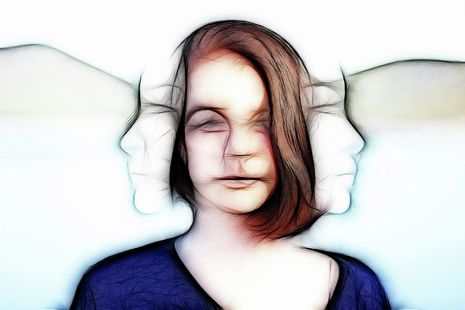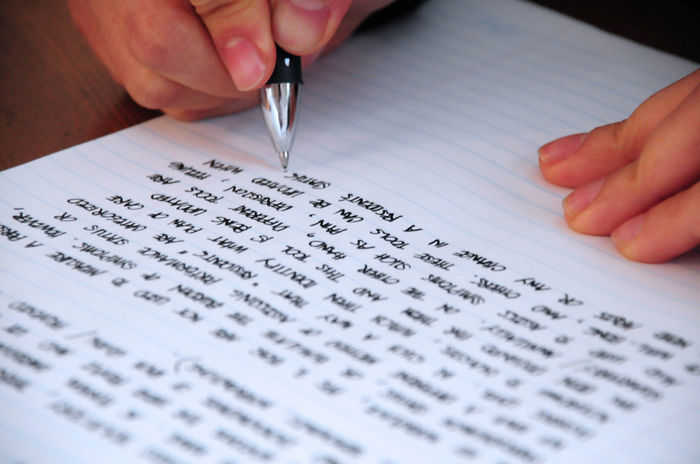Lost Boy: From thought to performance
Writer Emma Robinson previews her play Lost Boy, which is being staged at the Corpus Playroom next week

Speeding down a dual carriageway, as a 17-year-old who should probably be firmly strapped in the passenger seat, the streetlights blinding me at intervals, and a randomly selected Spotify playlist turned way up, Ruth B.’s “Lost Boy” comes on. My existential, ‘main character’, late-teen brain latched onto this concept of running from reality — of the directionlessness and the energy and the impulsivity of it, and I wrote …
I prefer ‘run’ to ‘running’. I pretend there’s a voice saying it. Run!
And then I reread Peter Pan, falling in love with the layers of darkness and poetry that I’d never appreciated before —
If you shut your eyes and are a lucky one, you may see at times a shapeless pool of lovely pale colours suspended in the darkness; then if you squeeze your eyes tighter, the pool begins to take shape, and the colours become so vivid that with another squeeze they must go on fire.
“Lost Boy is about escapism and the all-too-relatable desire for freedom and self-definition which comes with being kind of an adult but kind of a child”
Like, come on, that’s just beautiful!
So, I wrote a play. And, initially out of a lack of ingenuity, and later because no other name could possibly describe it, I called it Lost Boy.
Essentially, it is nothing like Peter Pan, and, to me, it is everything which that story represents. Lost Boy is about escapism and the all-too-relatable desire for freedom and self-definition which comes with being kind of an adult but kind of a child. There is a Neverland, but it’s a world of fantasy which is hard to maintain — which is essentially as fragile as … life, I guess.
But mostly, I kept coming back to this feeling of disgust. Or indignation. Or something else that I’ve not quite found a word for yet. I disliked the children who I once dreamt of being, because they weren’t just flying off to adventures, they were also, selfishly, abandoning their parents. At the very end of Peter Pan, it states that the cycle of children running away to Neverland ‘will go on, so long as children are gay and innocent and heartless’. That really stuck with me. Heartless. We all remember the idyllic reunion, when the children return and run into their mother’s arms, but the parents, all that time, were scared and confused and alone. Possibly the children’s fear that there would be ‘bars on the windows’ when they returned was not unfounded. Maybe, it wouldn’t be unjustified.
“I love the parts where she is just being a bitch—Orli Vogt-Vincent (actor)”
And now, we have a performance! And it’s chaotic! It’s a stream-of-consciousness masked as a story. And, sometimes, it makes no sense, because, honestly, when does someone else’s mind ever make sense. But also, because she — the she who is telling the story, whose name we don’t know, who doesn’t tell us her name, who we just call ‘F’ — she doesn’t want it to completely make sense. Because, when it makes sense, you can see everything — you can see all the cracks and all the lies, and all the pain.
Listening to her rabble uncontrollably on, you’ll laugh, and when you do, she’ll love it. Because she’s a performer, and she’s a creator — a distractor. She distracts people, and herself. She avoids.
I’ve been avoiding too — avoiding saying simply what this play is about. Lost Boy is about lives intersecting, mothers and daughters, loss and hope, and someone finally actually taking a minute to just breathe, to be and see, and accept, maybe.
But, don’t worry, it’s not all existential and ‘deep’.
From that lone, awfully out of tune, self-indulgent singing on the dual carriageway, we have arrived at a … proper thing! So, come along, and please, please help us resolve the crew’s dispute over how on earth to pronounce MAOAMs.
 News / Eight Cambridge researchers awarded €17m in ERC research grants27 December 2025
News / Eight Cambridge researchers awarded €17m in ERC research grants27 December 2025 News / Clare Hall spent over £500k opposing busway 24 December 2025
News / Clare Hall spent over £500k opposing busway 24 December 2025 Comment / League tables do more harm than good26 December 2025
Comment / League tables do more harm than good26 December 2025 News / Caius mourns its tree-mendous loss23 December 2025
News / Caius mourns its tree-mendous loss23 December 2025 Comment / The ‘class’ of Cambridge24 December 2025
Comment / The ‘class’ of Cambridge24 December 2025










